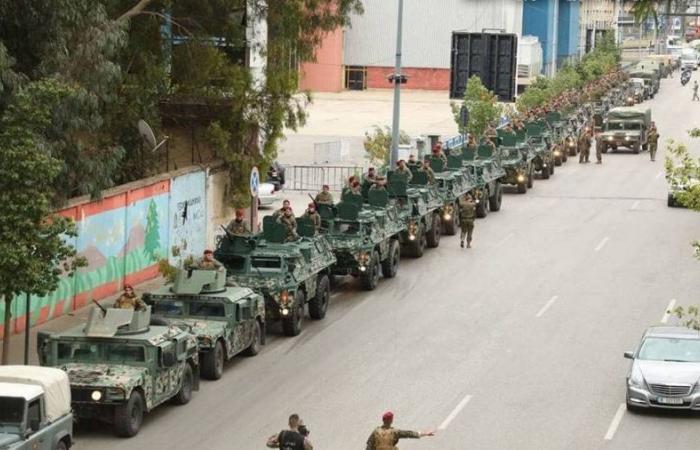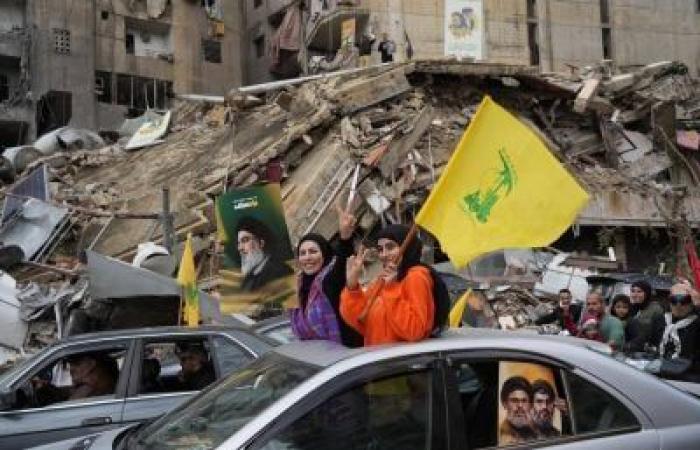As for all Lebanese actors directly concerned by the application of the ceasefire agreement between Lebanon and Israel announced Tuesday evening, the Lebanese army was on Wednesday from dawn on a war footing to begin its mission to maintain the truce in South Lebanon. As part of the (strict, this time) application of Security Council resolution 1701, the military is responsible for replacing the Hezbollah militiamen and supervising the withdrawal of its weapons south of the Litani River. . Reacting to this approach, MP Hassan Fadlallah affirmed on Wednesday that his party will demonstrate “total cooperation”. How is this operation shaping up and what is the plan in place to get this delicate task off the ground? Despite the recent diplomatic procrastination and the uncertainty which preceded the final agreement, the military institution had already prepared in advance and had considered the logistics and necessary means. We already know: in a first phase, the troop must gradually mobilize nearly 6,000 units distributed in different points, with the exception of regions and localities where Israeli forces are still located. They are supposed to definitively leave Lebanese territory within sixty days, until the Lebanese military have taken control of the region.
Read also
Can the Lebanese army disarm Hezbollah in the South?
In the meantime, the Lebanese army already has nearly 4,500 elements in South Lebanon – two brigades of 3,000 elements and a regiment of more than a thousand soldiers, who will be distributed to sensitive locations. The latter had been redeployed during the last two months when the fighting raged, in posts relatively far from the border, the army not having taken part in the conflict. The rest, some 2,000 additional elements, will be deployed to the scene little by little, the first contingents having already headed south on Wednesday morning. “The additional personnel were drawn from the ranks of so-called reserve units, made up in particular of special forces such as land and naval commandos,” confides to The Orient-The Day General Khalil Gemayel, retired officer. This is the fastest formula for which the troop has already opted. In addition to the 6,000 soldiers who will gradually have to be assigned to this mission, the military institution has planned other potential options if necessary.
The reservists?
A second option consists of redeploying part of the units which were previously mobilized in relatively safe regions, such as Chouf for example. “They are trained and ready to assume their mission. They constitute a compact and united body since they all know each other, which is an advantage,” specifies General Gemayel. This therefore assumes that relief in these so-called safe localities can be ensured by the Internal Security Forces. “The ISF must fulfill its original mission to ease the burden on the army. Especially since the role of the troop is not to maintain security internally, but at the borders,” comments Khaled Hamadé, another retired officer.
The army, which had been entrusted with tasks of maintaining order and internal stability years ago, in support of the ISF, while its initial role at the borders had been confiscated by the forceful presence of the Hezbollah, can now be rehabilitated in its functions. “A final option finally consists of mobilizing the reservists, estimated at nearly 30,000, who can be recalled at any time. These are former retirees still of age to serve,” specifies General Gemayel.
Read also
“Victory for sovereignty”, “New page”: the ceasefire agreement warmly welcomed on the political scene
Except that this formula, which was tested in 2006, “is not the most practical”, estimate former soldiers who mention problems of efficiency and motivation, due to the advanced age of the recalled but also the meager salaries received by the soldiers, especially since most of them have already found a job. It therefore remains to guarantee the recruitment, training and financing of nearly 6,000 other elements within six to ten months, a challenge that the army is committed to meeting on condition of providing it with the means. On October 24, at the request of the United Nations, participants in the Paris conference announced aid of 200 million dollars to support Lebanon’s security forces, including the army. “To date, Lebanon has received nothing,” confided anonymously to L’OIL a source close to the case. However, we will not know if this is a necessary period to test the will and seriousness of the Lebanese in the process of implementing 1701, during the 60-day transition period, before disbursing the least penny.
One of the first tests that one of the army units faced on Wednesday in the first moments of its deployment was to push back the inhabitants of the south of the Litani who poured in en masse to reach their villages. However, the Israeli army is still in certain localities such as Khiam. On Wednesday morning, a video of a resident taking a photo of himself in front of an Israeli tank circulated on social media. As soon as they were alerted, the Lebanese soldiers proceeded to seal off all access to this town. “The Israelis started shooting in the air to keep them away. The Lebanese soldiers quickly intervened to put a stop to the incident,” comments an anonymous military source. In a message on X, Avichay Adraee, Arabic-speaking spokesperson for the Israeli army, took care to warn residents not to head south at this stage. One of the challenges that the army is initially called upon to take on.
As for all Lebanese actors directly concerned by the application of the ceasefire agreement between Lebanon and Israel announced Tuesday evening, the Lebanese army was on Wednesday from dawn on a war footing to begin its mission to maintain the truce in South Lebanon. As part of the (strict, this time) application of UN Security Council Resolution 1701…
- -






